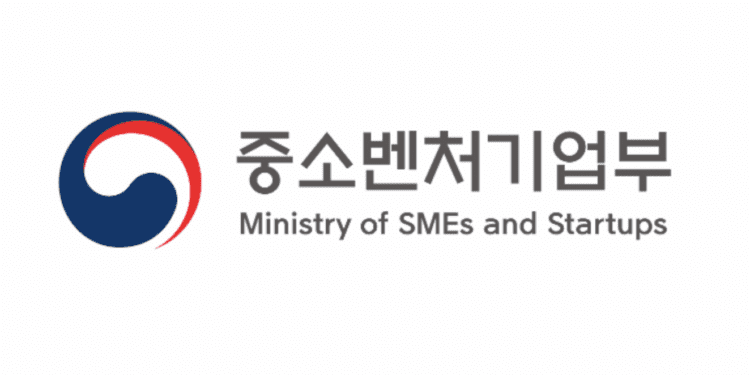In a dynamic juxtaposition of government initiatives and market challenges, South Korea’s venture capital (VC) scene is experiencing a pivotal moment. The Ministry of SMEs and Startups, spearheaded by Minister Lee Young, is making bold strides to reshape the investment landscape for larger benefit in 2024 and beyond, while industry reports reveal a stark freeze in fundraising, primarily driven by soaring interest rates.
Government Initiatives to Propel Venture Investment
On December 12th, the Ministry of SMEs and Startups unveiled a comprehensive set of amendments through the ‘Enforcement Decree of the Venture Investment Promotion Act.’ Passed at the Cabinet meeting. The revised bill encompasses strategic elements, including conditional investment loans, the establishment of investment purpose companies for venture funds, and conditional equity conversion agreements. These amendments are strategically
crafted to usher in a new era of private investment inflow into the growth funds of startups and venture companies.
A significant highlight is introducing a conditional investment loan system, aiming to provide startups with a financial safety net until they secure follow-up investments. This novel approach grants lending institutions a small amount of new stock pre-emption rights, facilitating low-interest loans. To kickstart this initiative, the Small and Medium Venture Business Corporation plans to pilot a dedicated fund worth 50 billion won ($38 million).
Furthermore, the amendments empower venture investment associations to establish investment companies that can borrow from financial institutions. The Korea Technology Finance Corporation steps in with the ‘Investment Matching Guarantee Program,‘ solidifying support for the revitalization of the system.
The government’s foresight extends to early-stage companies, addressing the challenge of determining corporate value. A conditional equity conversion contract system is introduced, acquiring convertible bonds that can be converted into equity upon attracting follow-up investment. This unique system allows for the repayment of principal and interest if the attraction falls through, providing a safety net for early-stage startups.
As part of the rebranding efforts, the name of startup investment companies will undergo a transformation to ‘Venture Investment Company.’ Additionally, the venture investment regulations will see improvements, including the abolition of M&A funds’ obligation to invest in new stocks and a relaxation of restrictions on investment in listed stocks, effective from December 21.
Minister Lee Young expressed optimism, stating, “The introduction of advanced venture financing techniques will be an opportunity to resolve startups’ growth funding difficulties and advance the venture investment ecosystem to the next level.”
VC Industry Grapples with Frozen Funds and Institutional Halt
Amidst these government-driven reforms, the Venture Capital (VC) industry finds itself in the grip of an unprecedented slump. According to industry reports, fundraising in the venture capital sector has come to a standstill, primarily attributed to the continued surge in interest rates. The number of large venture funds, a key indicator of a thriving VC market, has plummeted to just five in the first three quarters of this year—a sharp decline from 17 in 2022 and 21 in 2021.
This decline, a staggering 70 percent year-on-year, is forecasted to dip into single digits for the first time in four years. The situation is compounded by institutional investors, notably pension funds and mutual aid associations, putting a halt to venture investments. Their investment in venture funds during the first half of this year dropped by a staggering 80 percent compared to the previous year, reaching only 107.6 billion won.
The repercussions are dire, particularly for small and medium-sized VC companies. Larger VC firms, adjusting to the market dynamics, are increasing the sizes of their venture funds. However, this leaves smaller players struggling to raise funds and facing significant capital losses.
In 2023, eight VC firms received corrective orders from the Ministry of SMEs and Startups for capital losses—the highest number since 2020. The number of newly registered VC firms has sharply declined from 42 in 2022 to just 13 at the end of September.
As South Korea navigates these dual narratives of government-led reforms and market challenges, the future of the venture landscape remains uncertain. Industry participants are closely watching how these initiatives will shape the trajectory of venture capital in the coming years.
Also Read,
- Korean Government Announces $ 858 million Investment in 42 Venture Funds to Foster Innovation
- Seoul Metropolitan Government Launches 5 Trillion Won (3.7 billion USD) ‘Seoul Vision 2030 Fund’ to Foster Startups
- South Korea Launches CVC Alliance with 42 Corporations to Drive $6.2 Billion Innovation Boost for Startups
- Navigating Corporate Feuds: Analyzing Jihoon Rim’s Performance Bonus Lawsuit Against Kakao Ventures & Internal Governance Dispute
- Korean Ministry selects venture fund managers worth $245 million to support startups & entrepreneurship
Keep tab on latest news in the Korean startup ecosystem & follow us on LinkedIN, Facebook, and Twitter for more exciting updates and insights.






